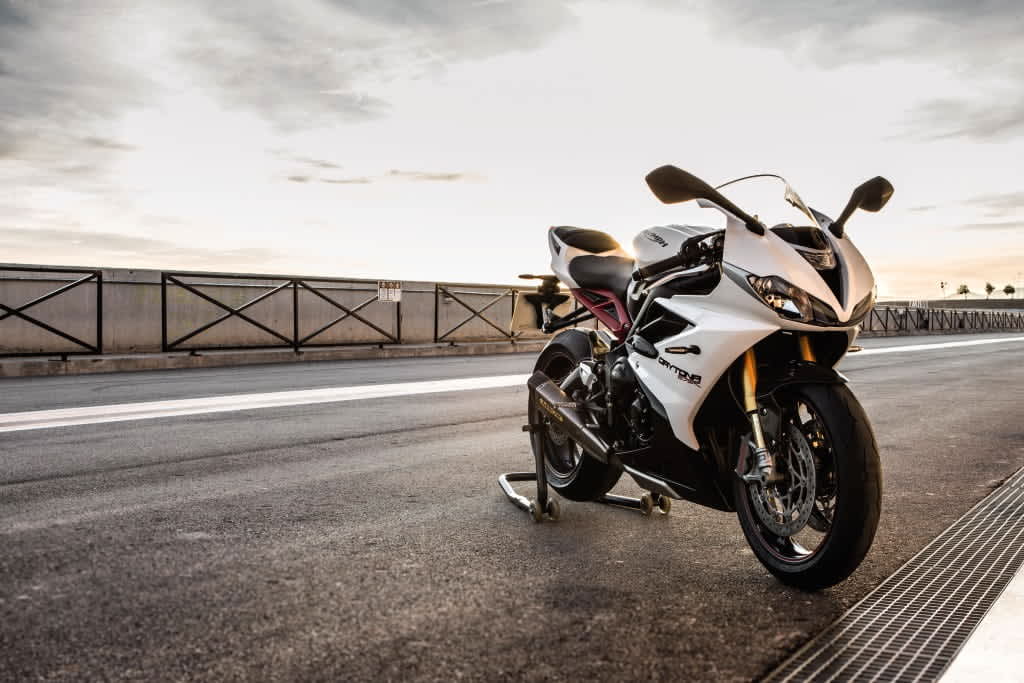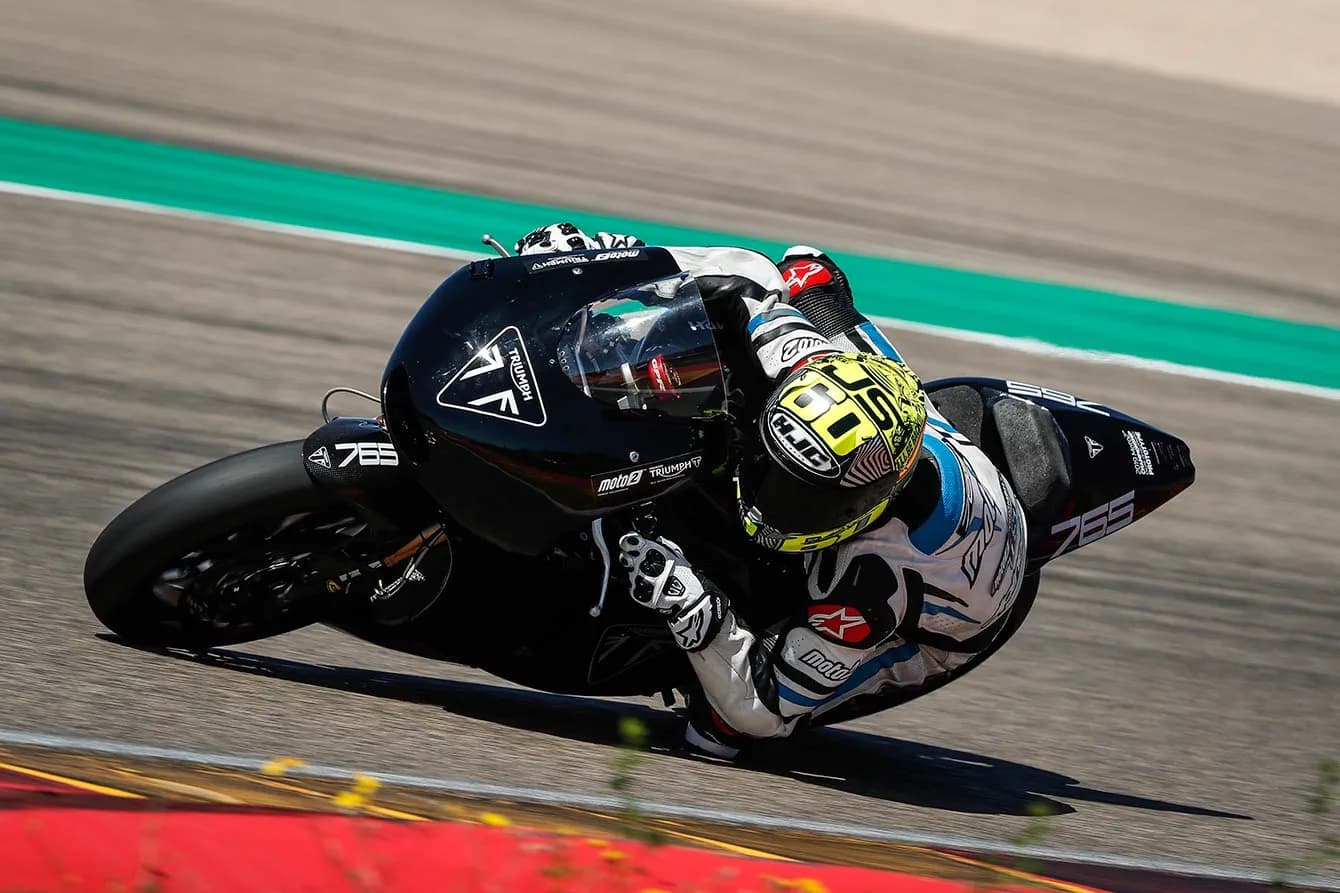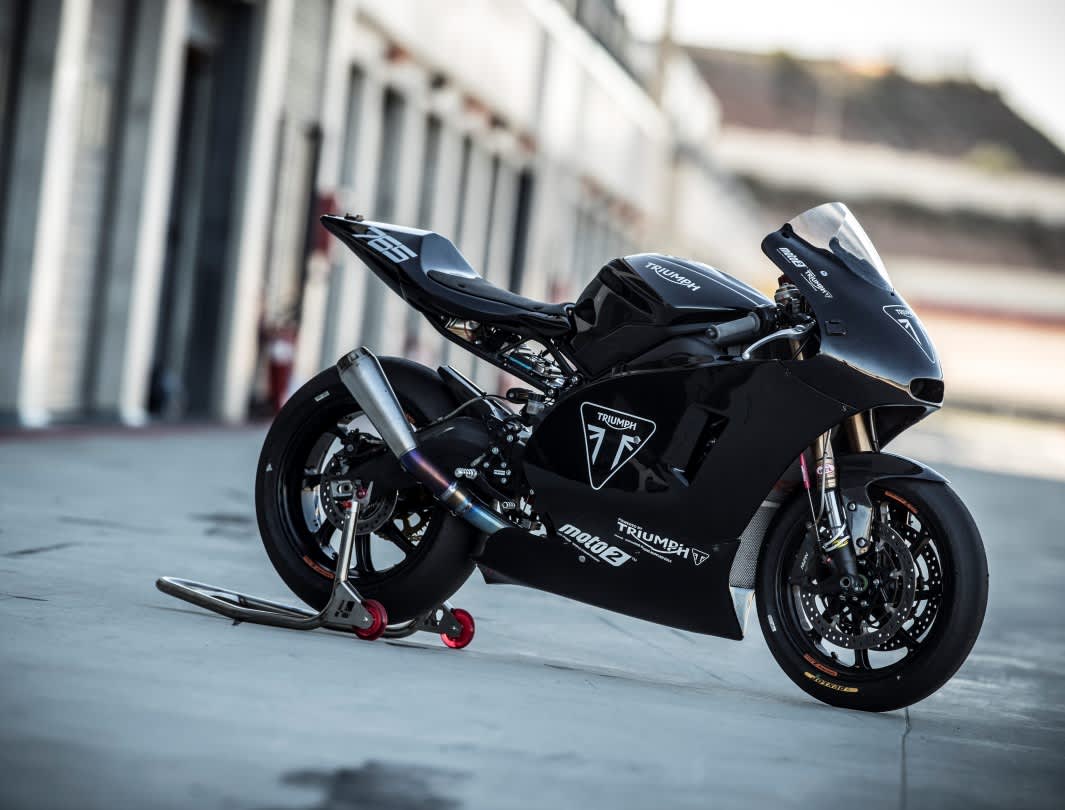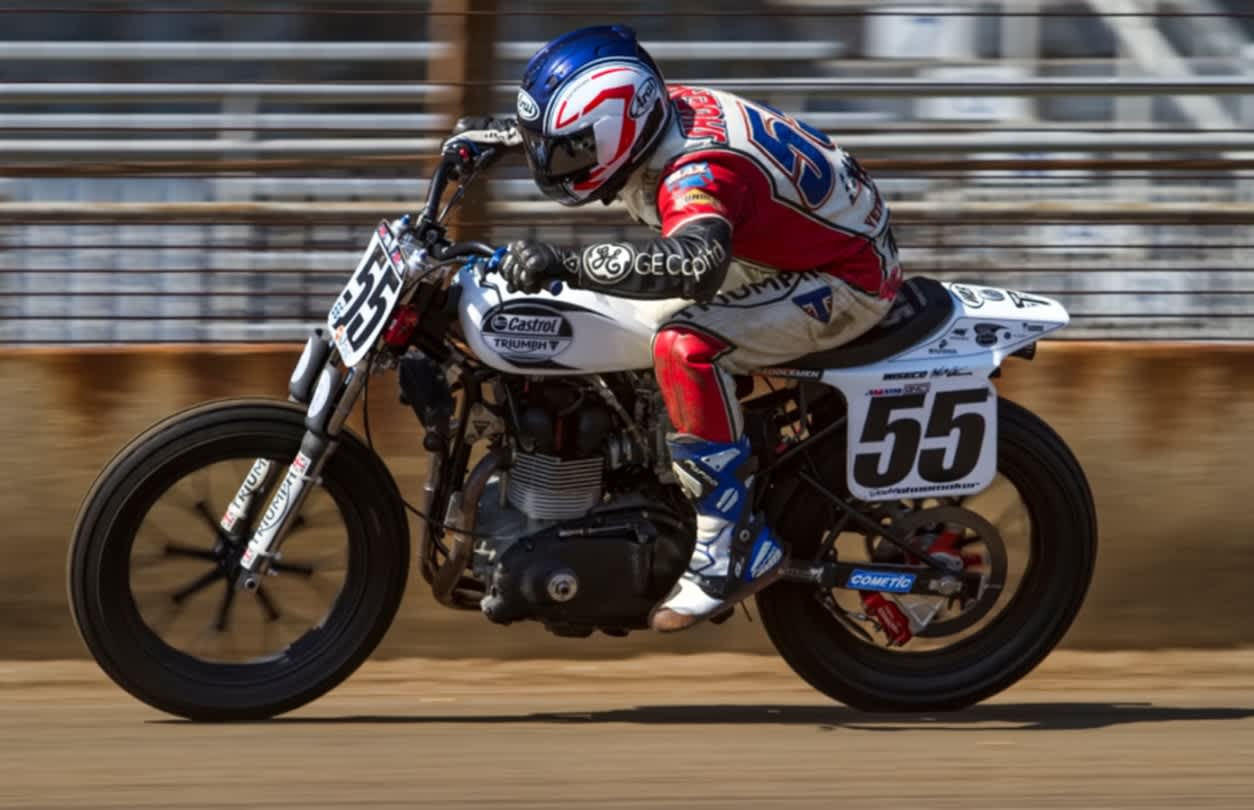WORLD'S FASTEST
LANDSPEED
Breaking boundaries: only the brave
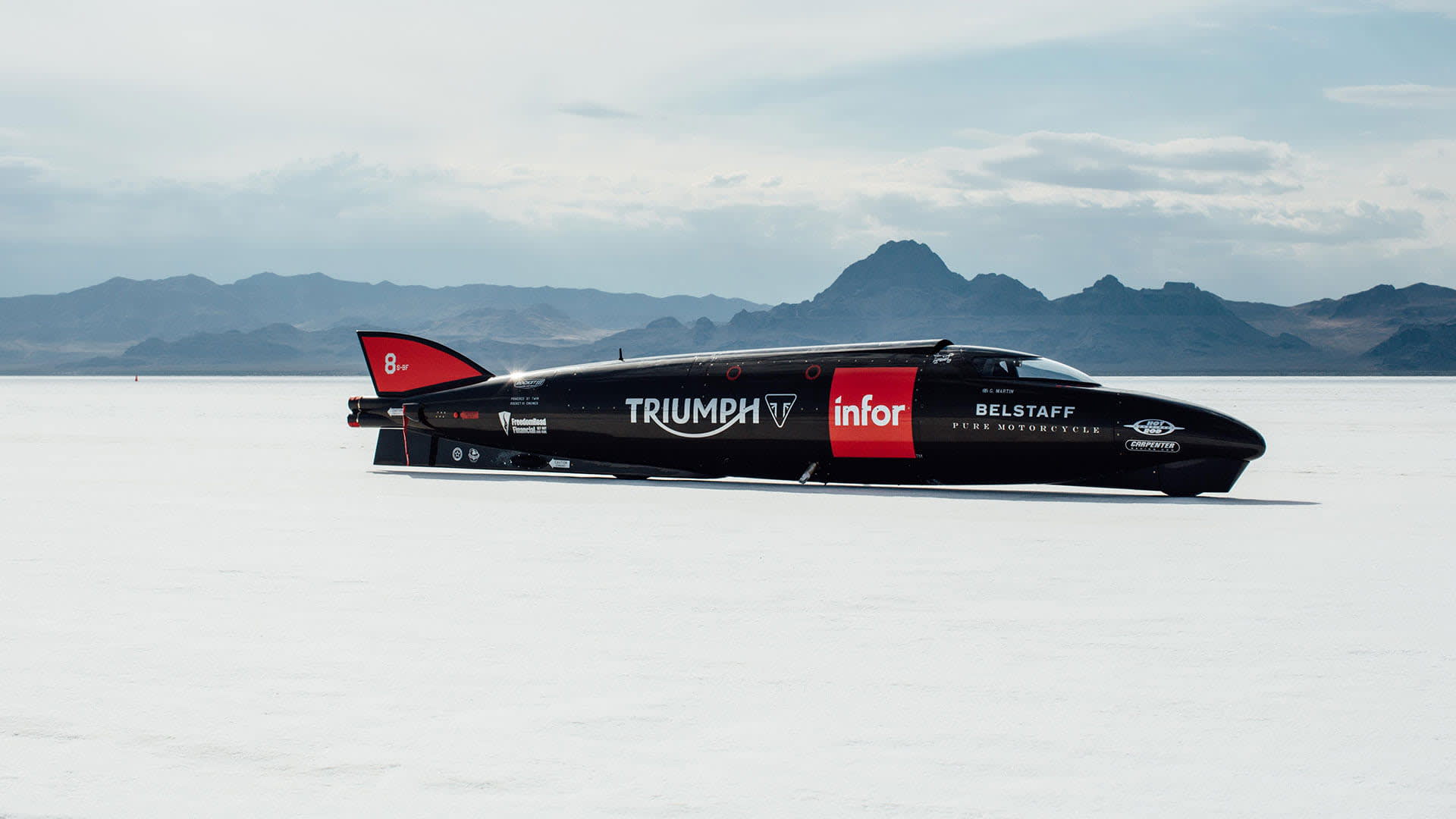
A century ago, even before Malcolm Campbell’s Bluebird reached 146.16mph to set the first world land-speed record on Pendine Sands in 1924, Triumph riders were stretching the limits. Their motorcycles were at the vanguard of the earliest bids to be the world’s quickest along the sweeping seven-mile stretch of ice-rink-flat South Wales sand… Britain’s very own Bonneville Salt Flats.
Fast-forward to the post-war years and in 1954 Jack Dale stripped down to his swimming trunks in an attempt to make his Triumph Thunderbird even more aerodynamic at the Bonneville Salt Flats.
Image Source: Mortons Archive
1955 – THE DEVIL WENT DOWN TO UTAH
Johnny Allen was a pioneer in the purest sense, a man for whom the fear of the unknown was merely an added incentive to cut through the salt of Bonneville at approaching a third of the speed of sound.
In September 1955, the flat-tracker strapped himself in to the 15-foot-long Devil’s Arrow Streamliner to record a bone-shaking 193mph on the vast expanse of salt.
When a German NSU Motorenwerke team went faster a few months later, the Triumph team returned to Bonneville with a fresh paint job and a new name and smashed the top speed once more to regain the title of the world’s fastest motorcycle.
Image Source: Mortons Archive
With that success the legend that was the Texas Cee-Gar was born, a year on from Allen’s first charge as he set a new world record of 214.40mph… a feat that proudly stood while rivals stumbled for six years.
The iconic Triumph Bonneville, launched in 1958, was named in honour of the Cee-Gar team, whose technological and human endurance would prove the inspiration for 38 Triumph-branded bikes to go on to hold AMA National class speed records and four FIM World Records.
1962 – STREAMLINED FOR SUCCESS
The race was well and truly on as the sixties – a decade synonymous with man’s desire to go further and faster – swung into view.
As space travel loomed, aircraft mechanic Joe Dudek combined the concept of an X-15 rocket plane with a bored-out T120 Bonneville engine to raise the bar at Utah.
Rider Bill Johnson initially piloted Dudek's machine to a gasoline-powered record of 205mph, but the daredevil duo then drained the gas from the bike, changed the carburettor jets and refuelled with nitro methane.
The result was a new world motorcycle speed record of 224.57mph, confirmed by AMA referee Bus Schuller (coincidentally, the owner of the Thunderbird ridden by the swimming-trunk daredevil Jack Dale). The Dudek streamliner was destroyed in a blaze in 1974, but its record lived on in the Streamlined, Altered Frame and Fuel class until 1992.

1966 – NO HIDING PLACE
Smashing the previous record by nearly 20%, Bob Leppan with critical support from the aerodynamic revolutionary Alex Tremulis took his beautiful Gyronaut X-1 in 1966 to an incredible 245mph.
Image Source: Getty Images

BOB LEPPAN
“You cannot be a normal person to be doing this,” said Triumph’s top-selling US dealer Leppan as he gazed across the 11-mile expanse of white into the jaws of oblivion.
“If you’re not prepared to lay it all on the line, it isn’t what you should be doing. You have to be a little bit over the edge."
“When things are correct,” recalled Leppan, “it’s a great ride, but when things don’t go well, it’s absolutely terrifying. On my second run I thought, ‘if I’m going to crash it, I’m really going to crash it. This is it!’ Of course there’s fear, but you have to work your way past it.”
Image Source: gyronautx1.com

ALEX TREMULIS
A brilliant engineer with experience at a string of vehicle manufacturers, Tremulis was a visionary.
At Ford he designed the car ‘he believed we’d be driving in the year 2000’ and during a spell in the Air Corps he made the first speculative drawings of saucer-shaped spacecraft he thought aliens would use to visit earth. That was the kind of vision that Leppan needed.
Tremulis introduced groundbreaking new designs to the Triumph Streamliner, including a new fairing, a chrome-molybdenum frame, active landing gear, a roll-bar, fire suppression system and specially designed Goodyear 250mph+ tyres, all crafted to improve the odds of success… and survival.
Image Source: gyronautx1.com
MAKING HISTORY
In 2014 a new project started to immortalise Triumph as the only motorcycle manufacturer to have broken the motorcycle Landspeed record 5 times.
With an all new 1000bhp twin rocket powered carbon fibre clad streamliner, a dedicated team of passionate engineers and two of the most focused and brave pilots in the world we have taken on the legendary Bonneville salt flats and fought the elements to chase the ultimate prize in motorsports.
CASTROL ROCKET III
Daytona 200 winner Jason Di Salvo was lined up to pilot the Triumph Castrol Rocket III past the new 2010 record of 376mph – 400mph was the magic number – but Mother Nature was having none of it.
Di Salvo recalled: “After a while at speed on the salt you become desensitised to it. The interesting part is when you get back in the rental car to head for the hotel and realise you're doing 100mph.”
ROCKET TO THE FUTURE
Triumph’s quest to smash the 400mph barrier is still very much alive, with TT racer Guy Martin most recently the man in the hot seat in 2016 and 2017.
Once again the conditions on the salt conspired against the Triumph Infor Rocket Streamliner attempt with the course under water, thwarting any chance of using the two turbocharged and methanol-fuelled Rocket III engines.
And the future? Watch this space.
race winning. record breaking. history making.
- Landspeed
- Isle of Man TT
- Daytona 200
- Track - Supersports
- Track - MOTO2
- Ama Grand National Flat Track
- Daredevils
Landspeed
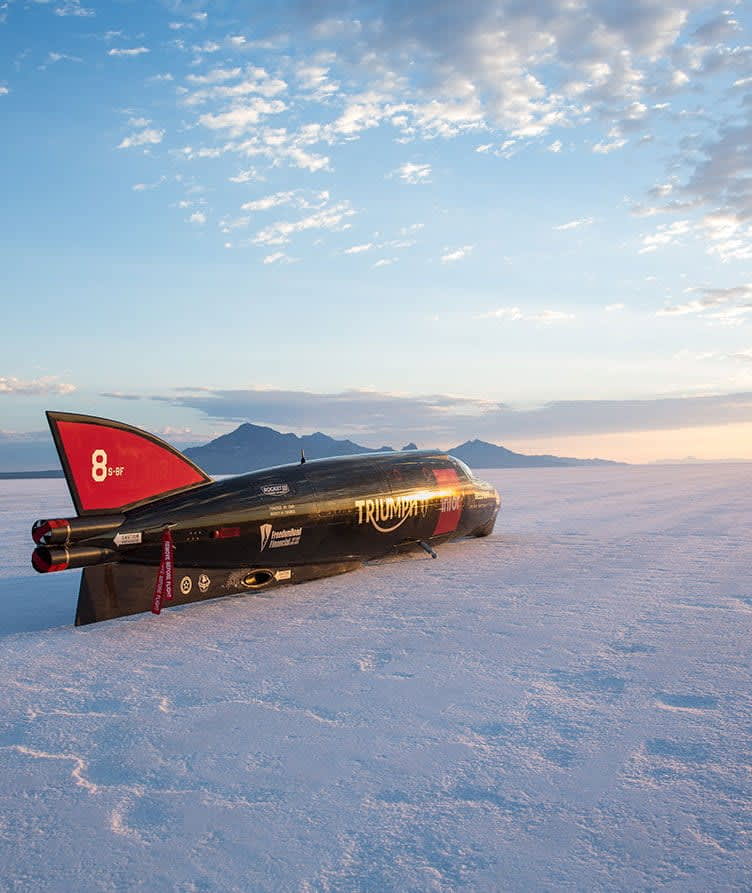
Isle of Man TT
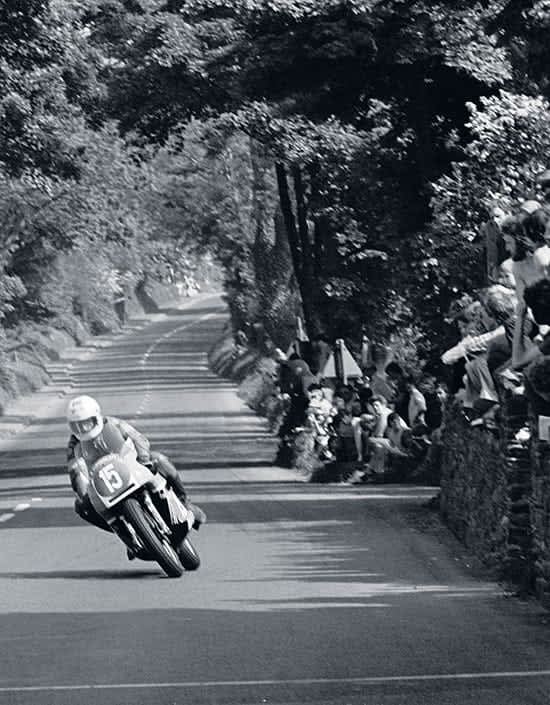
Image Source: Mortons Archive
Daytona 200
![G Nixon win Daytona 1967 [Nelson]](https://media.triumphmotorcycles.co.uk/image/upload/f_auto/q_auto:eco/sitecoremedialibrary/media-library/images/central%20marketing%20team/brand%20story/worlds%20fastest/g%20nixon%20win%20daytona%2067%20nelsoncrop-550x705.jpg?h=705&w=550&la=en-AU&hash=07BE566926018068BEF8B09A8D7492E75AB16C45)
Image Source: John Nelson Archive
Track - Supersports

Track - MOTO2
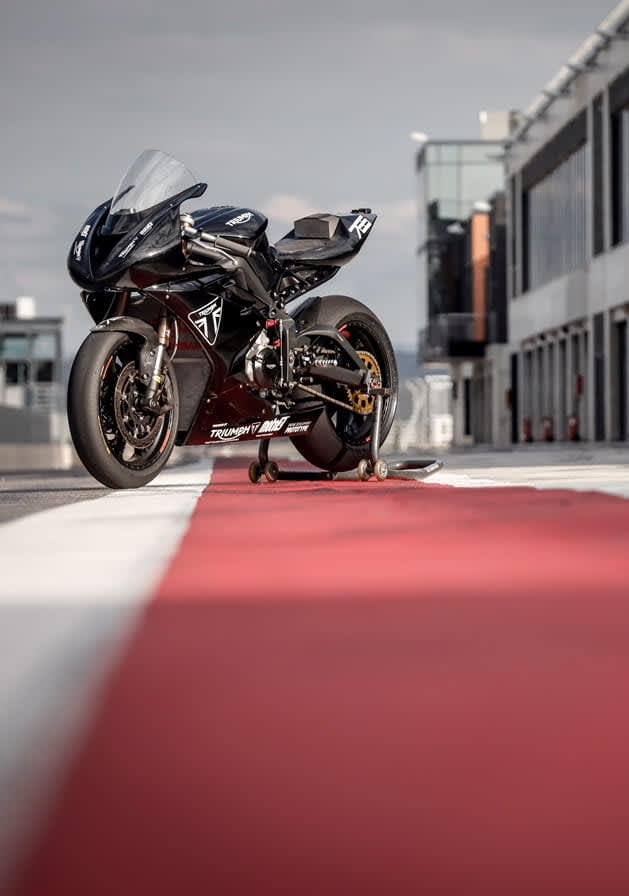
Ama Grand National Flat Track
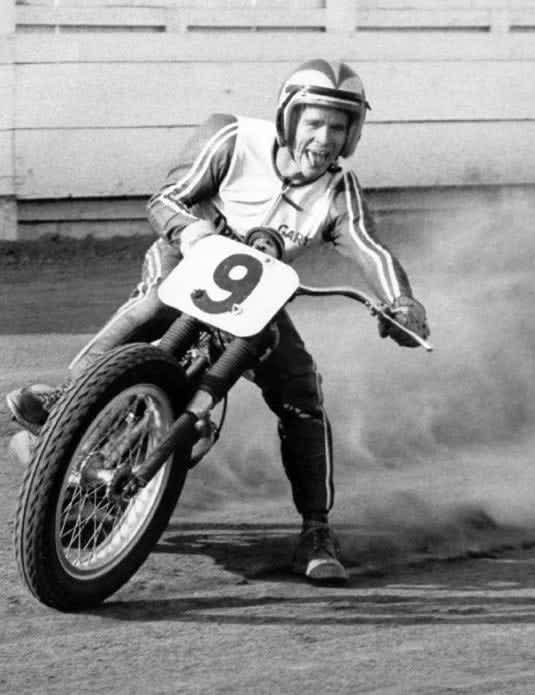
Daredevils


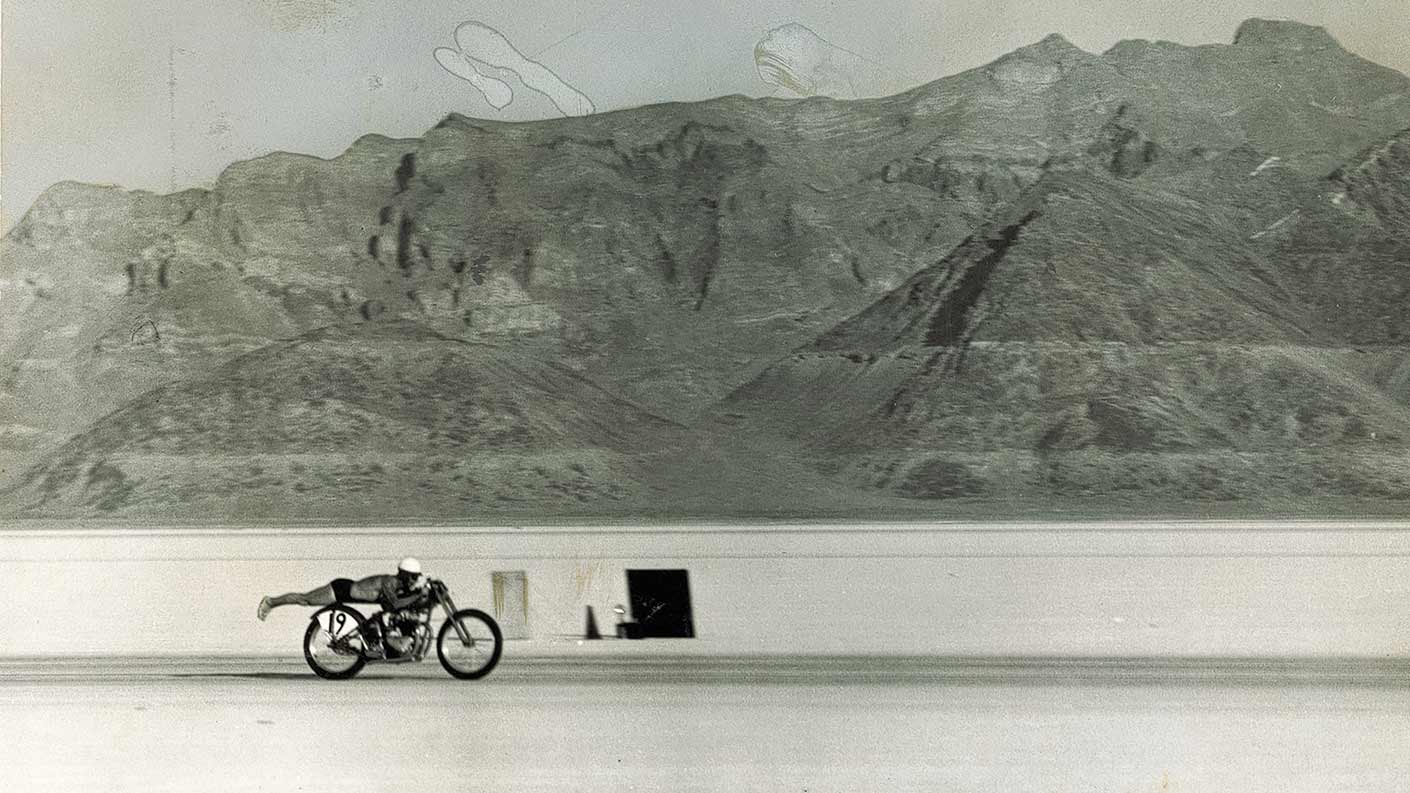
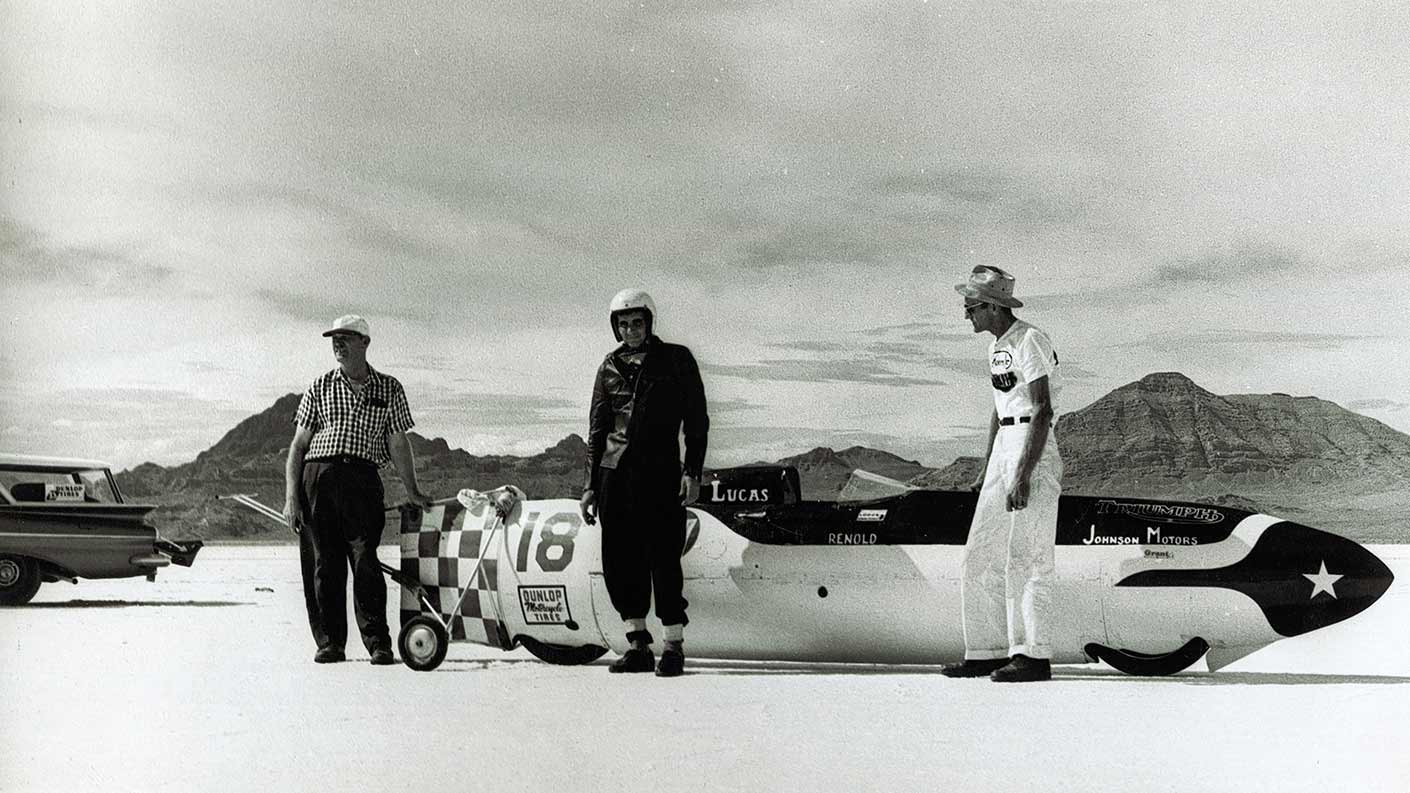
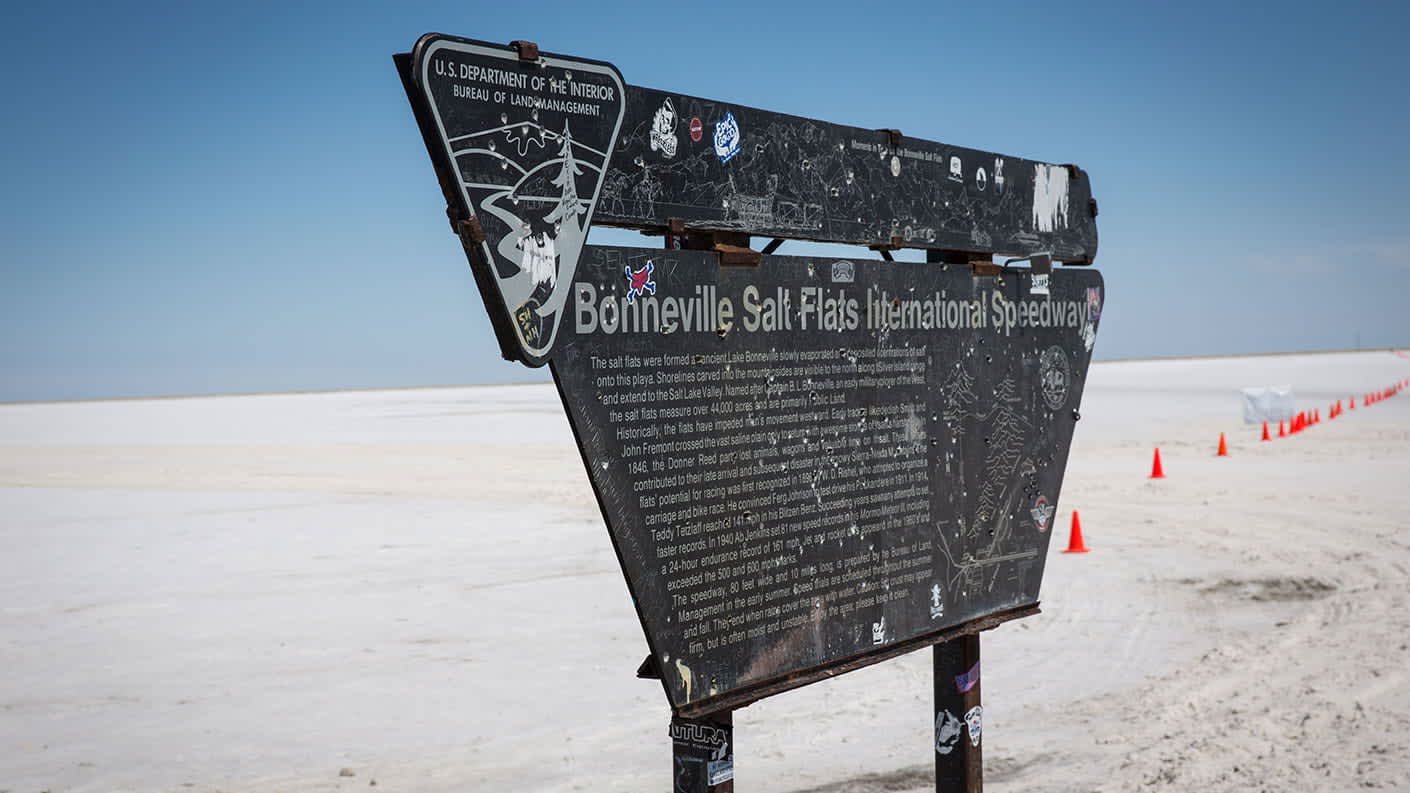
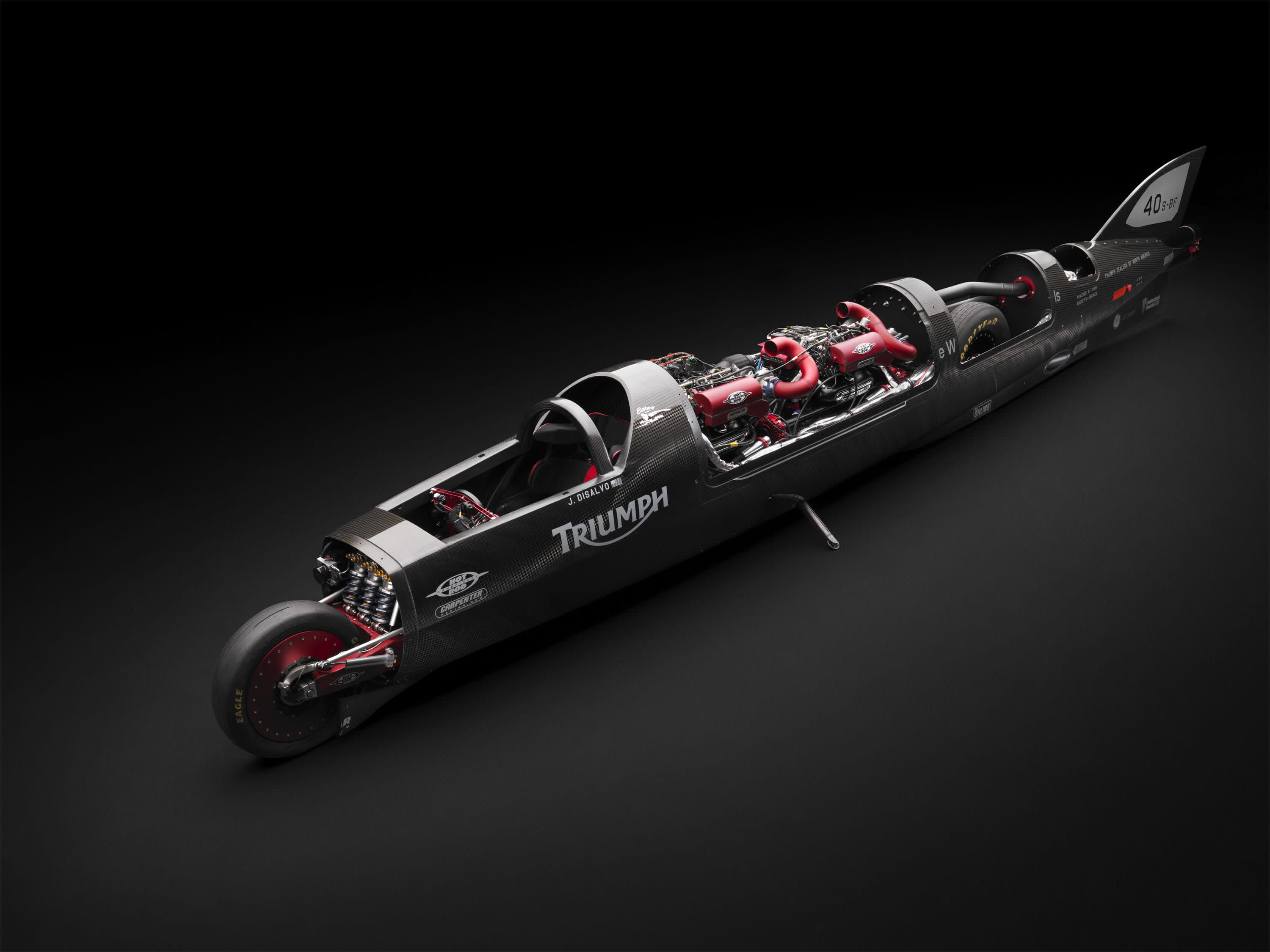
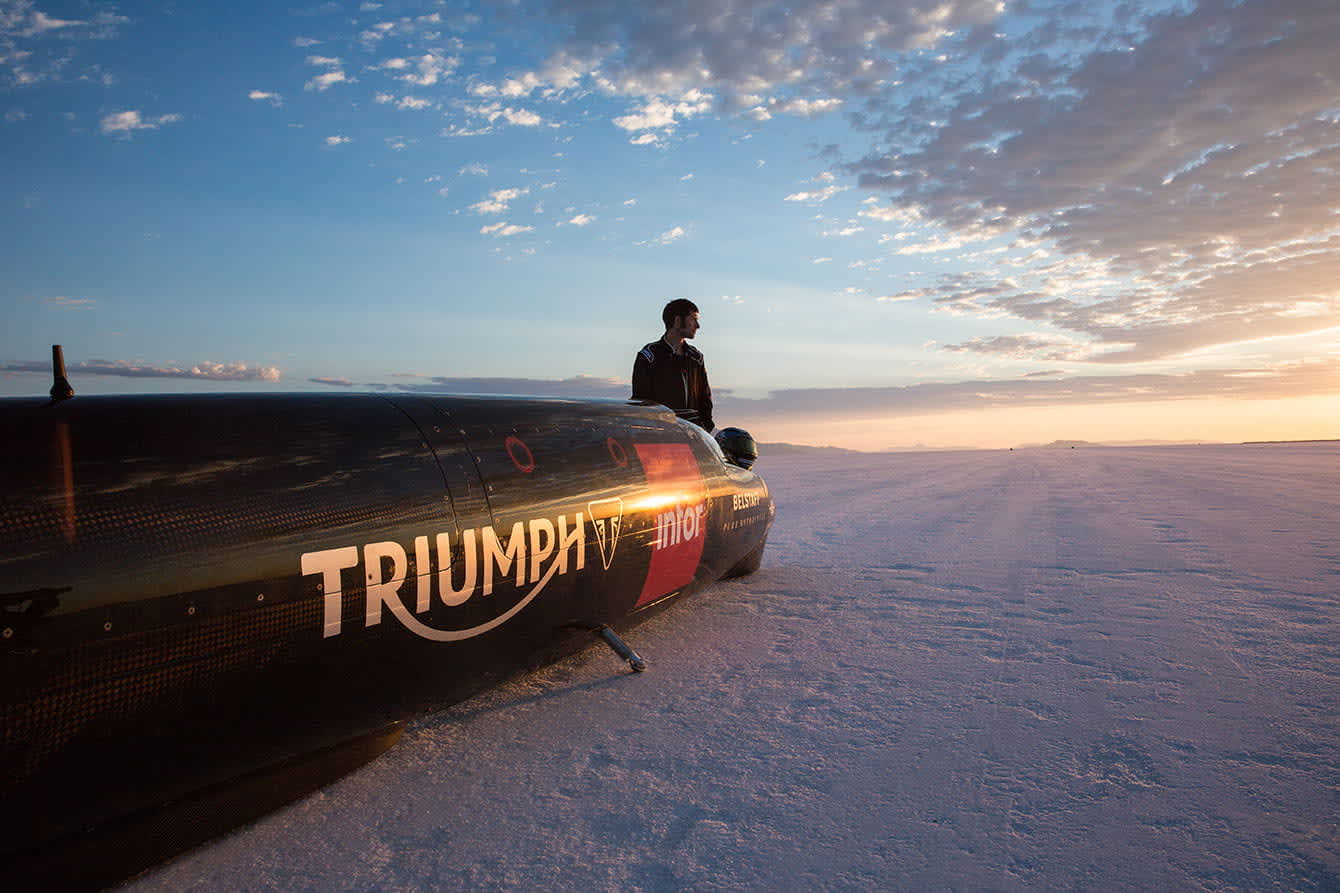





![B Elmore winning Daytona 66 [Nelson]](https://media.triumphmotorcycles.co.uk/image/upload/f_auto/q_auto:eco/sitecoremedialibrary/media-library/images/central%20marketing%20team/brand%20story/worlds%20fastest/b%20elmore%20wins%20daytona%2066%20nelson_960x1290.jpg)
![B Elmore winning Daytona 66 [Nelson]](https://media.triumphmotorcycles.co.uk/image/upload/f_auto/q_auto:eco/sitecoremedialibrary/media-library/images/central%20marketing%20team/brand%20story/worlds%20fastest/b%20elmore%20wins%20daytona%2066%20nelson_1065x810.jpg)


